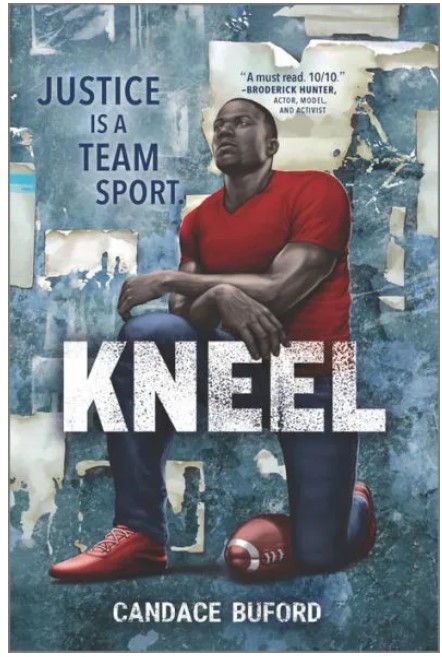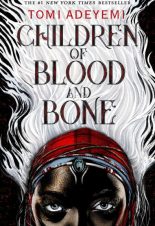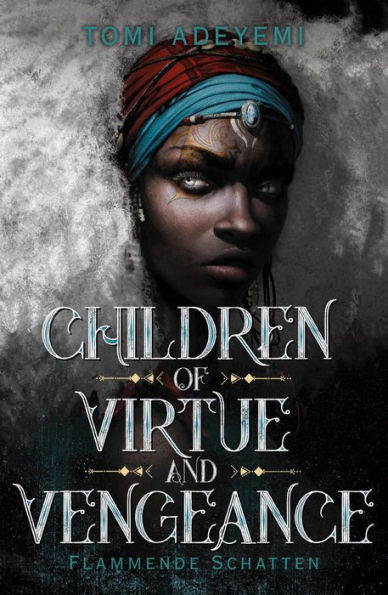
Buy This Book Buy This Series
Other books by Tomi Adeyemi
“It hasn’t even been a moon since the ritual and it feels like magic’s destroyed the entire kingdom,” Amari. —Children of Virtue and Vengeance
Children of Virtue and Vengeance
Legacy of Orïsha #2
by Tomi Adeyemi
AR Test, Diverse Characters, Strong Female
14+
Score
4.8
448
Since the ritual that brought magic back to Orïsha, rebel maji have been concentrating their forces in preparation to take down the corrupt monarchy that has oppressed them for so long. Not only have the white-haired maji regained their magic, but nobles inside the monarchy have also begun to gain magical powers, heightening the stakes of the upcoming war.
Children of Virtue and Vengeance picks up shortly after the conclusion of Children of Blood and Bone. The second installment in the Legacy of Orïsha series showcases the political struggles of the Orïsha’s rebel army. The story is told from the rotating perspectives of Inan, Zélie, and Amari. Inan, the crown prince of Orïsha, returns to his mother’s inner circle and struggles to understand which side he should take in the war. Amari, once the princess of Orïsha, has joined the rebellion and is hoping to lead the people to victory and take her place as their new queen. Zélie has become one of the most powerful maji in the rebellion. While she hones her new powers, she also must grapple with processing the traumas she underwent in the first part of her adventure, which was detailed in Children of Blood and Bone.
Amidst endless political turmoil and battles, the reader will likely find the most compelling part of the story to be the relationships between the characters. Amari and Zélie had a strong friendship in the first installment, but political stressors test their bond. Meanwhile, Zélie’s feelings for Inan, which were romantic in the first book, solidify into hatred. Consequently, Zélie begins a new romance with pirate mercenary Roen, while her brother Tzain continues seeing Amari.
Audiences may find the plot unsatisfying, as its pacing does little to hold the reader’s attention. The prolonged battles are difficult to follow and visualize. Characters talk abstractly about the deaths of soldiers and rebels while discussing war strategy, but this limits the battle’s emotional effect. The most compelling parts of this book are the emotional struggles that the characters experience. Zélie, Inan, and Amari all struggle with anxiety, grief, and the long-lasting effects of trauma. They make messy decisions, and their relationships break apart due to stress. Readers who rooted for the friendships forged in the first book may find themselves disappointed when these friendships fall apart.
The politics are hard to follow, and the constant switch of perspectives makes the battle scenes difficult to understand. Despite this, fans of the first book will be happy to have a continuation of the story. However, they won’t find the same adventure and excitement that made the first book so memorable.
Sexual Content
- Tzain and Amari share an intimate moment. Amari burrows “back into Tzain’s neck, running my fingers across the new stubble along his chin… He runs his thumb along my jaw, igniting a surge almost as powerful as my magic.”
- When Roen takes his shirt off, Zélie’s “face warms at the sight of his sculpted muscles.”
- Zélie sees Inan and remembers his “lips that promised me the world. Hands that caressed my skin.”
- Inan’s cousin jokingly tells him, “I’ve heard the legends of what greatness lies beneath your robes, but I fear I’m far too pure to see it for myself.”
- Roen touches Zélie’s face, and she thinks, “Though I don’t want to feel anything, his touch makes an ember flicker in my stomach.”
- During a romantic moment with Tzain, Amari notices “his sandalwood scent, I realize how much I want him. How much I want more… I imagine what a few hours with him might entail. How his kiss might feel.” When they kiss, their “lips meet, and the rush is so strong it spreads through my entire body. A flutter erupts between my legs as I shift, pressing into him.” They are interrupted and don’t go any further.
- At a celebration, Amari slow dances with Tzain. “Tzain dips his chin and kisses the top of my head. He places his hands along my waist, making my skin tingle when his thumbs brush a sliver of bare skin.” Later, they leave the party and kiss more. Amari’s “fingers curl the moment his lips meet mine. I sink into him, tasting the sweet remnants of palm wine… I think of how many times I’ve imagined this moment. Imagined being here with him. My pulse races as I slip my fingers under the hem of his tunic.”
- As they’re about to move further, Tzain makes her stop because he’s afraid she’s only consenting to intimacy because she’s afraid she’ll die soon. Amari says, “I don’t want to be with you because I’m afraid of dying. I want to be with you because I love you.” They take off their clothes and lay on a bed together, but the narrative skips over the actual act.
- During an outing with Roen, Zélie asks him, “Is this a ploy to get me naked?” Roen says, “You know I don’t need ploys for that.”
- Zélie sees something and says, “That’s the most amazing thing I’ve ever seen!” Roen tells her, “That’s usually what my lovers say about me.”
- Zélie and Roen have an intimate moment. Zélie surrenders “to his touch. To the feel of his lips against my ear. He makes me lose myself in his arms, stealing the air from my lungs with every caress. ‘Is this okay?’ he whispers. My breath hitches as he squeezes my waist, hands lingering at the hem of my tunic.” They stop soon afterwards.
Violence
- A lot of the battle scenes are magic-centered. For example, when Amari launches an attack on the enemy in battle, she magically “strikes them in an endless blue wave.”
- Later in the battle, someone uses magic to turn the army’s mounts rabid. “Soldiers scream as they’re flung form their panthenaires’ backs. The riders foam at the mouth… A rabid panthenaire sinks its fangs into its soldier’s throat.”
- While discussing military strategy, someone floats the possibility of the queen using innocent villagers “as shields.”
- Zélie recalls how the mercenary Roen “once told me that his torturers carved a new line [in his arms] every time they killed a member of his crew before his eyes; twenty-three tally marks for twenty-three lives.”
- As Amari begins to practice magic, she finds it painful. “Midnight-blue tendrils shoot from my fingertips like sparks from a flint. My palms sting as my skin splits. My scars rip open at the seams… I stumble into the mirror. Crimson smears across my reflection. Blood trickles down my chest as I fall to my knees.”
- During a battle, the royal army releases majacite gas into the air, which is toxic to maji. Maji “scream like their nails are being ripped off.” A maji’s skin “sizzles and burns. He struggles to scream as he chokes on the black smoke.”
- Zélie is hit by the toxic gas and describes how “smoke burns my skin like a branding iron… The poison sears the skin of my calf. Another cloud hits the scars on my back.”
- The rebellion uses a large stone dome as their base of operations. Amari watches the queen use magic to collapse it. The queen “punches her fists into the ground. The earth splits open at her touch… Screams fill the dome as Nehanda’s fracture cuts across the sand… Then I hear the crack. The crack cuts through the dome’s wall… The dome crumbles.”
- While recklessly riding her lionaire, Zélie crashes and nearly falls off a cliff. “I claw at the sky as I fly toward the forest. My body smashes through wiry branches before slamming into a tree. I wheeze as my chest collides with hard bark. My ribs fracture with a loud crack. Blood flies from my lips as my vision blacks out and I tumble to the ground.”
- In their dreamscape, Zélie sees Inan “hold the scarred flesh of his abdomen as if it still leaks blood. I can almost see his memories coming back to him. The pain of his father’s sword driving into his gut.” He is physically unharmed. The wound he is remembering was detailed in the first book.
- During a magical dreamscape, Zélie gets mad at Inan and makes “black vines tighten around his throat, cutting off his words as he chokes. Blood drips down his back, oozing as the jagged bark scrapes into his skin.”
- While escaping the palace, Inan punches guards in the throat. The guards “wheeze… their grips loosen and I break free, ignoring the way they scream.”
- Inan watches from a distance as Lagos comes under attack. “Countless balls of fire arc through the air. They explode when they hit the ground… Screams ring through the night as the firebombs ravage Lagos all at once.”
- When Inan uses magic, he raises his hand “and my magic explodes with such force I hear the bones shatter in my arm.”
- Inan sees someone from the royal military kill a maji by injecting them with majacite. The torturer says, “Do you know what it feels like to have majacite in your veins? First it blocks the illness you call a gift. Then it burns you from within.” Inan watches as the torturer “yanks the girl’s head to the side, exposing her neck… The girl cries out when the needle pierces her skin. She tumbles like a brick, body seizing in the dirt as the majacite kills her from within.”
- During a fight, a fellow rebel maji attacks Amari with magic. “A cobalt cloud roars from [the maji’s] hand, searing into me. The cloud engulfs my mind like a match ignited in my skull… Her magic feels like thousands of nails drilling through my bones.” The fight is described over three pages.
- The maji tells Amari during the fight, “Kill your vile family. Kill yourself.”
- Amari fights the maji, and she screams “as I dig my hand into [her] hair and pull, driving my elbow into her temple… I straddle her body as a cobalt blaze ignites in my hands.”
- When Zélie encounters Inan, she attacks him. Zélie shifts her “weight, twisting Inan’s sword from his hands. Before he can react, I extend my blades. My spear slices through his side… I drive my knee into his gut.”
- Inan gets into a fight with a trusted friend. Inan pulls “a dagger from my belt, throwing it at his thigh.” The friend stops the dagger with magic, avoiding injury.
- Zélie is caught in a massive chain of explosions and falls into water. “My ears ring from the string of explosions. I can’t see anything. Falling rocks slice through my skin… The collision knocks precious seconds of air from my lungs.”
- A character loses a limb in the explosions, and “his severed arm lies underneath the boulder.”
- A character dies when a column of earth is magically thrusted through his stomach. His “eyes bulge as it punctures his stomach… he slumps forward as blood leaks from his gut, pooling onto the silver floor.”
- A maji summons a magical gas during battle. “The gas unleashes its attack, launching the wall of death… The cloud moves like a wave, crashing over everything in its path. Birds squawk as they try to escape… One’s wings fold as it’s flung into the cloud. The second it’s hit by the gas, its body shrivels. It plummets to the ground.”
- Zélie watches the gas hit a young mother. “Blood shoots from her mouth on impact. Her skin shrivels as it turns black. I see the moment she realizes that she won’t make it. The baby falls from her hands.” The mother dies, but the baby is safe.
- A maji attacks Amari. The maji “opens her hands and dark shadows of death shoot forth. Pain rips through me as they wrap around my body and my throat.”
Drugs and Alcohol
- Roen has “a cigarette tucked between his teeth.”
- The rebel maji drink palm wine during a celebration. Amari takes a cup and joins in a toast.
- During the celebration, “music and laughter bounce against the sanctuary walls. Palm wine runs free.”
- A couple makes a scene during the celebration. As a man tells a woman, “I love you!” the woman says, “You’re drunk!”
- Amari doesn’t drink palm wine because “Father wouldn’t drink before battle. Neither can I.”
- Inan drugs the queen by putting her own sedatives in a flute of wine.
Language
- A piece of fabric is “not fit to wipe a leopanaire’s ass.”
- “Gods” and “my gods” are used as invectives infrequently.
- “Skies” is used frequently as an invective. For example, “What in the skies?”
- Maggots is a slur that refers to the white-haired maji. People in the royal family often use the slur as a hateful pejorative.
- Twice, specific gods are invoked by name: “For Yemoja’s sake” and “By the grace of Oya.”
- Dammit is used four times.
Supernatural
- Several chapters concern the effects of a ritual wherein Zélie binds her lifeforce to that of another maji. Zélie “used the moonstone to connect our lifeforces. But without a blood sacrifice to bind our connection, neither of us can survive.” While they are connected, if one sustains an injury, both of them will suffer.
- An elder volunteers herself in a blood sacrifice. “Blood magic spreads inside her, glowing through every vein… With the final chant, the shine around her becomes too bright. She lights up the night like a comet flying through the sky.” Instead of physically dying, the elder magically disappears. This ritual marks a turning point in a battle and gives the rebel maji enormous advantage over their enemy.
- Zélie and Inan meet in a dreamscape, a magical landscape that exists only in their dreams.
Spiritual Content
- Much of the spiritual content concerns the magic system, and there is little separation between the spiritual and the supernatural. Maji get their powers from the same gods that they pray to.
- In a moment of hopelessness, Zélie thinks that her dead mother “was wrong to keep me on the earth.” The spiritual beliefs are as real as the magic system, and Zélie previously met her dead mother during a magical ritual. The existence of an afterlife is treated not as speculation, but as fact.
- Zélie says, “From the gods comes the gift of life… to the gods, that gift must be returned.”
- Zélie says, “This is destiny. The gods don’t make mistakes.” She’s referring to her new role as a maji with the rebellion.
by Caroline Galdi
Other books by Tomi Adeyemi
“It hasn’t even been a moon since the ritual and it feels like magic’s destroyed the entire kingdom,” Amari. —Children of Virtue and Vengeance
Latest Reviews
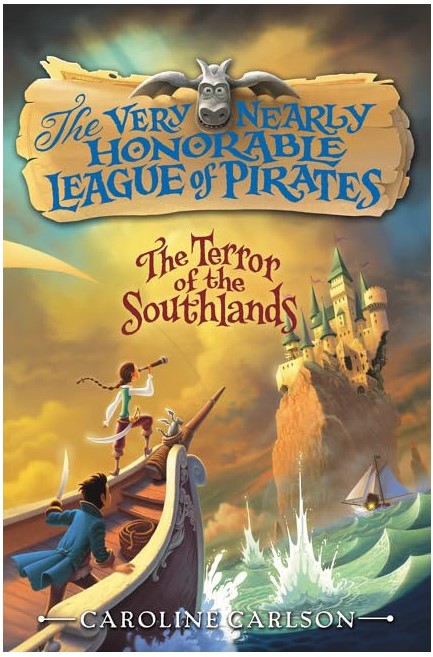
The Terror of the Southlands
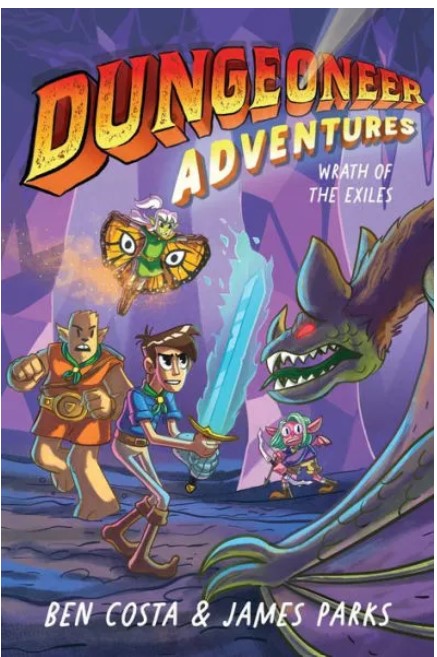
Wrath of the Exiles
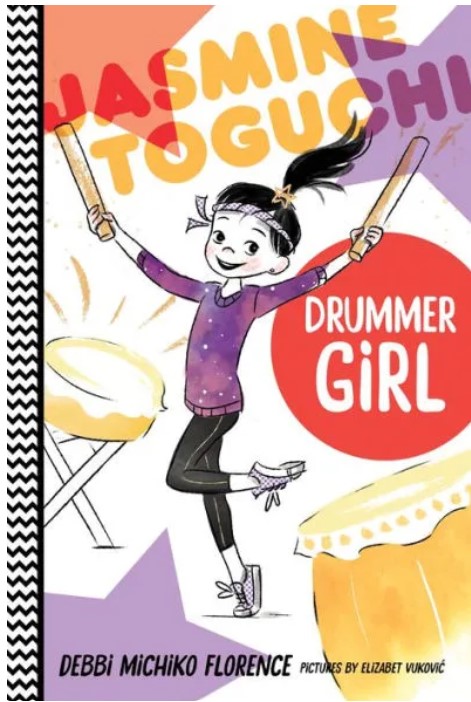
Jasmine Toguchi, Drummer Girl
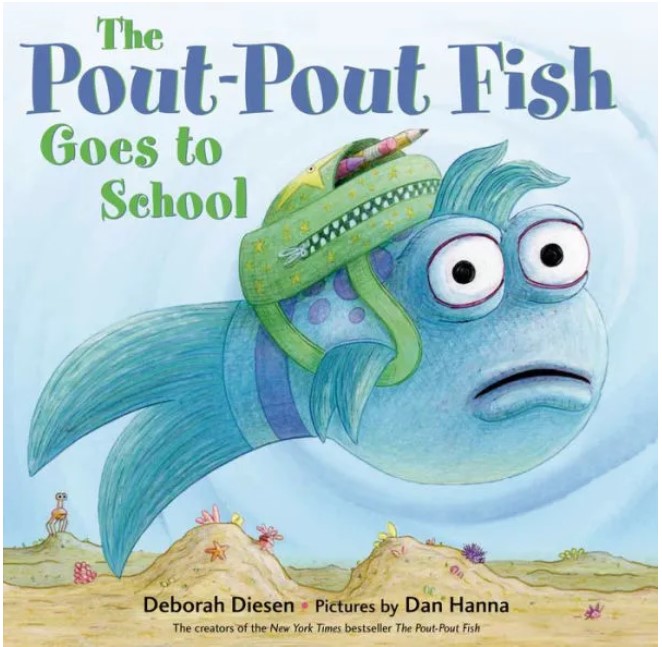
The Pout-Pout Fish Goes to School
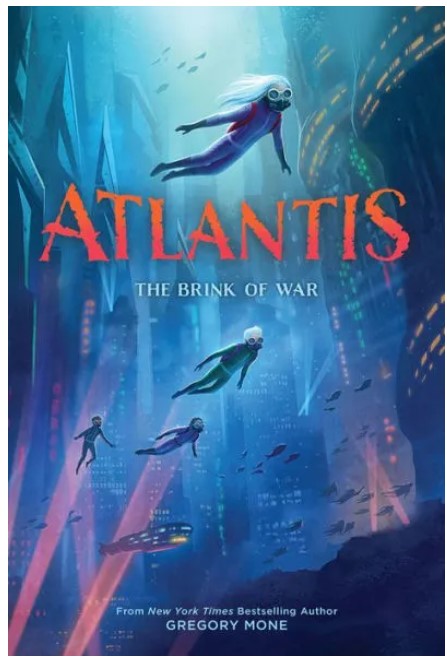
The Brink of War

Get Well, Crabby
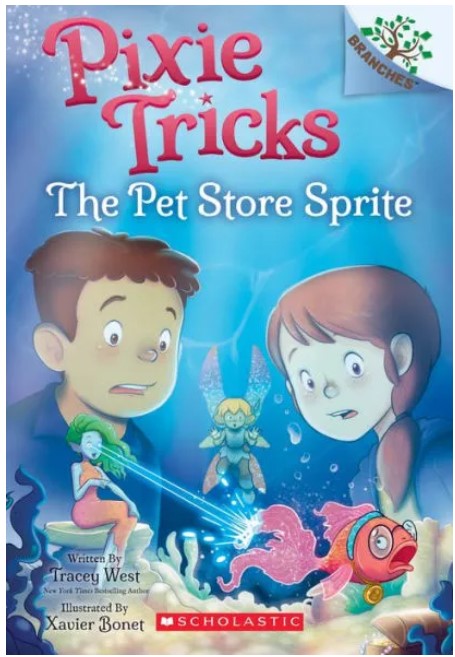
The Pet Store Sprite
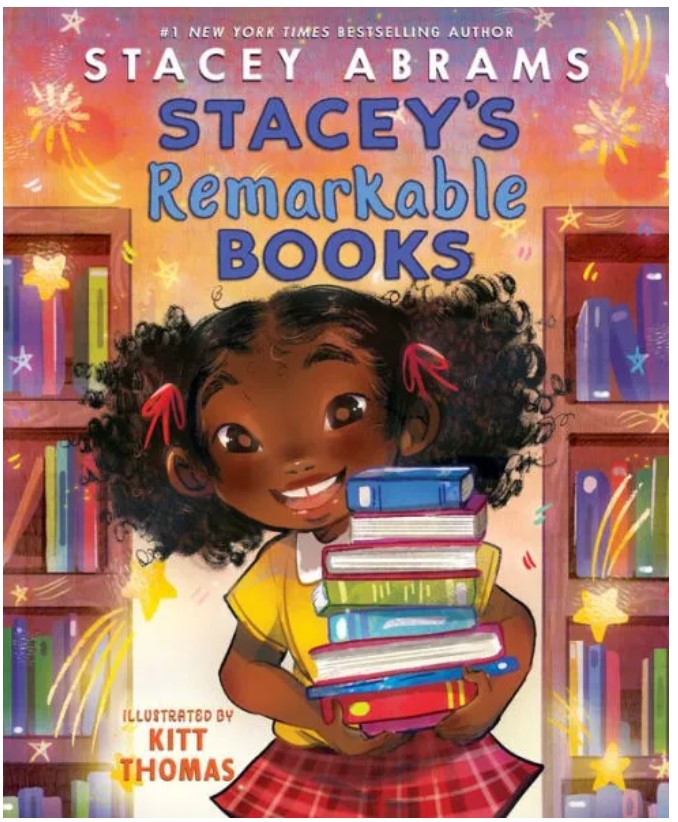
Stacey’s Remarkable Books
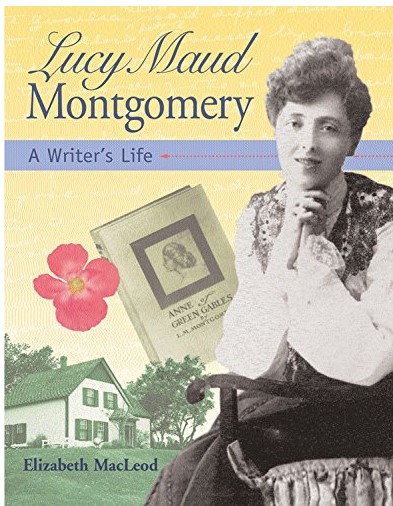
Lucy Maud Montgomery: A Writer’s Life
